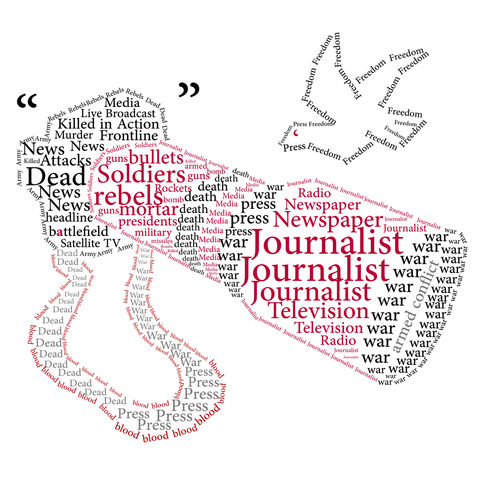
The Philippines has been deemed one of the most dangerous countries for media workers; a judgment that continues to prove itself true, as journalists continue to fall victim to the assassin’s bullet.
A radio broadcaster was shot dead on Monday, police said, by a motorcycle-riding gunman. This recent killing brings the number of journalists to be murdered in just over a month up to three.
Local police chief Superintendent Glicerio Cansilao said that a gunman riding a motorcycle shot Nilo Baculo, 67, at close range outside his home in the small central city of Calapan.
“We are investigating whether it had something to do with his work, although at the moment we could not say categorically,” Cansilao told AFP.
According to police reports, Baculo used to work as a commentator and newsreader for the DWIM radio up until it ceased operations in 2013.
The New York-based Committee to Protect Journalists has ranked the Philippines as the third most dangerous country in the world to be a media worker, just behind Syria and Iraq.
The Committee cites the Philippines’ “culture of impunity” as the reason behind the violence against media workers. This culture enables powerful figures, such as politicians or businessmen, to organise the killing of journalists or other critics without fear of being caught.
Further fueling this system is the reality that these figures can count on corrupt police and politicians, and a graft-tainted judicial system, as guarantees that they will not be held responsible.
Baculo’s murder came on the heels of the killing of another radio broadcaster n the southern city of Davao on May 23. Just two weeks before that, yet another radio broadcaster was murdered in the southern Philippines.
Records of the National Union of Journalists of the Philippines show that four journalists have been killed this year, bringing to 33 the total number of journalists killed since the Aquino administration came into power in 2010.
Despite repeated promises from Aquino and his aides to curb the killings and track down the ring the murderers to justice, the union and various press groups say that little has changed.
“We had expected a lot from this government, and we have been repeatedly let down,” union national director Nestor Burgos told AFP.
In November of 2009, in what was the deadliest political and media-related attack in Philippine history, 32 journalists were among 58 people killed in the southern province of Maguindanao.
The accused – leaders of a local political clan – have yet to be brought to justice; with trials and legal proceedings expected to take many more years to complete.